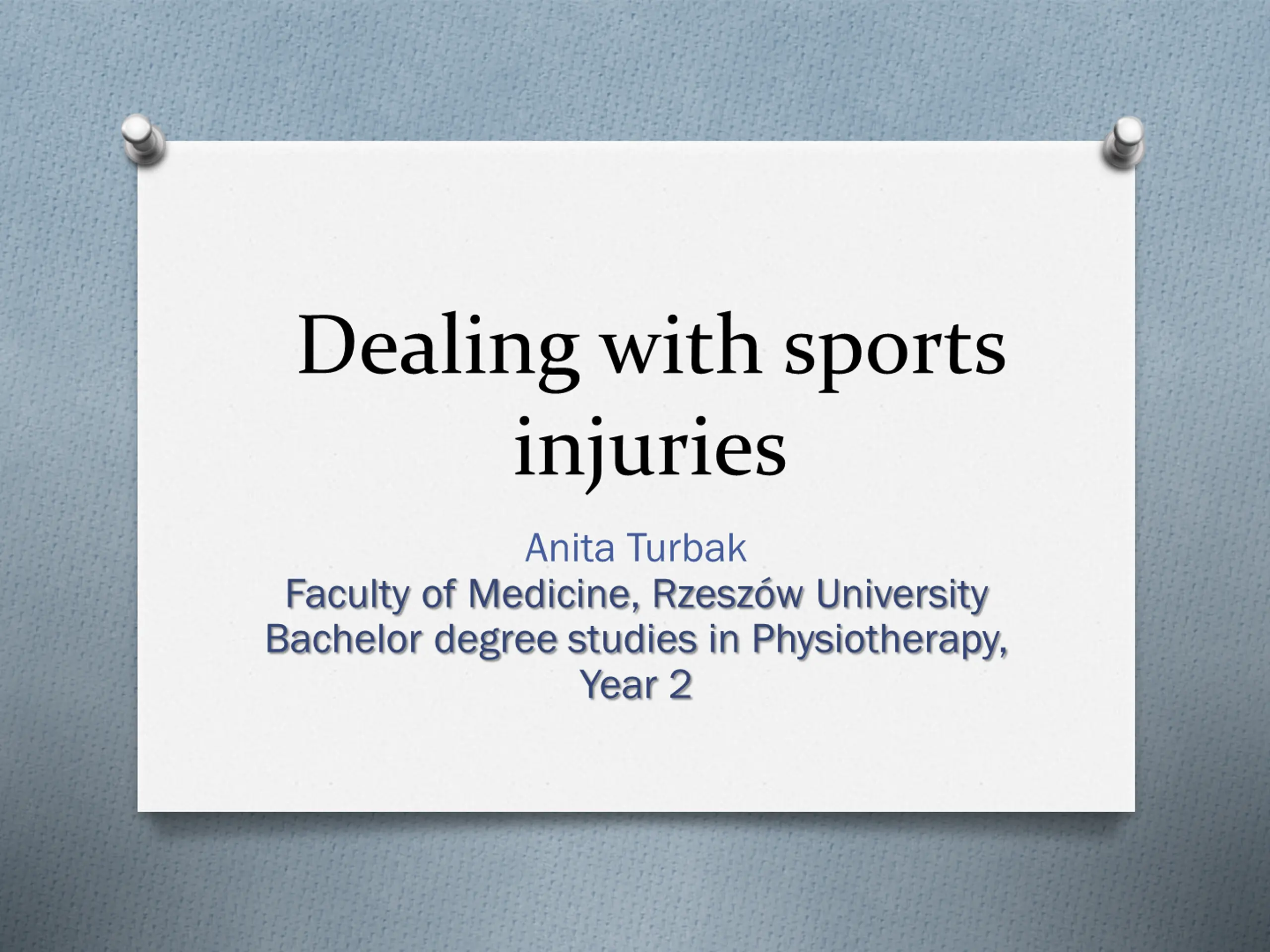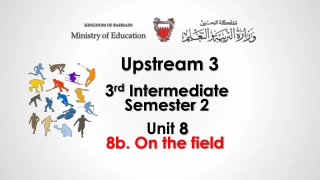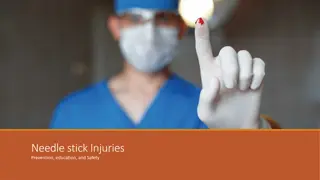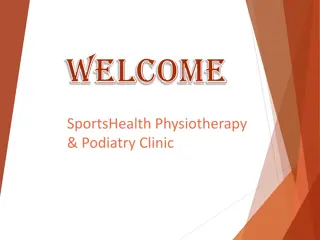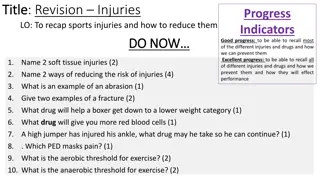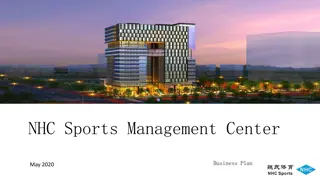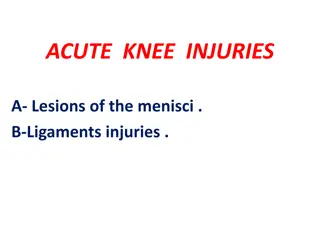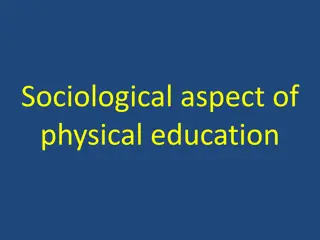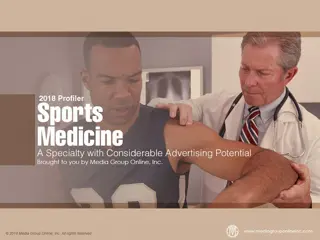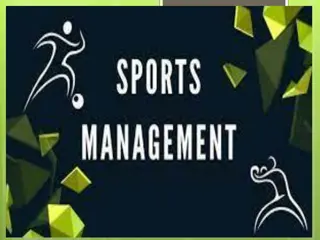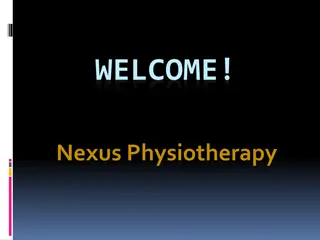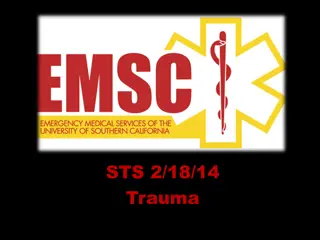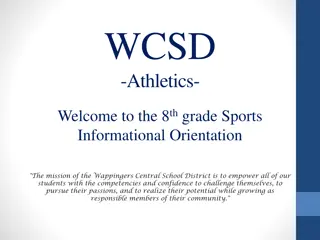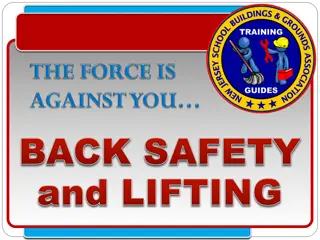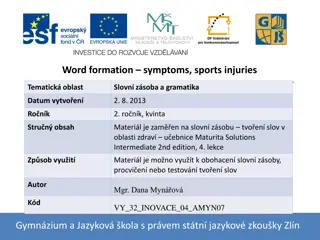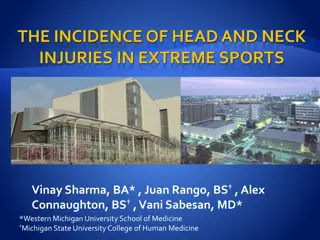Dealing with sports injuries
Anita Turbak, Faculty of Medicine at Rzeszów University, discusses the aims of physiotherapy after sports injury, ways to classify sports injuries, and treatment for soft tissue injuries.
Download Presentation

Please find below an Image/Link to download the presentation.
The content on the website is provided AS IS for your information and personal use only. It may not be sold, licensed, or shared on other websites without obtaining consent from the author.If you encounter any issues during the download, it is possible that the publisher has removed the file from their server.
You are allowed to download the files provided on this website for personal or commercial use, subject to the condition that they are used lawfully. All files are the property of their respective owners.
The content on the website is provided AS IS for your information and personal use only. It may not be sold, licensed, or shared on other websites without obtaining consent from the author.
E N D
Presentation Transcript
Dealing with sports injuries Anita Turbak Faculty of Medicine, Rzesz w University Bachelor degree studies in Physiotherapy, Year 2
Aims of physiotherapy after sport injury O treat and fully rehabilitate the person post- injury, post-operatively O to prevent further injury O to return the athlete to sport in the shortest possible time
Ways to classify sports injuries O Cause: direct injury indirect injury overuse injury O Type of body tissue: hard tissue soft tissue
Direct injuries O a collision with another O being struck with an object (ball, hockey stick etc.) O Examples
Indirect injuries O An indirect injury can occur in two ways: O In some distance from the impact site. O Internal forces
Overuse injury O Overuse injuries occur when excessive and repetitive force is placed on the bones and other connective tissues of the body O Pain in this type of injury
Soft-tissue injuries O Tears, sprains and contusions Tears, sprains and contusions O A tear is a disruption of the fibres of a muscle or tendon. O A sprain is a tear of ligament fibres, muscles or tendons supporting a joint. O A contusion or bruise is bleeding into the soft tissue.
Hard-tissue injury O Hard-tissue injuries are those involving damage to the bones of the skeleton
The aims of immediate treatment are: O To prevent further tissue damage O To minimise swelling O To reduce pain O To reduce the formation of scar tissue O To reduce the time needed for rehabilitation
Dealing with soft tissue injuries
RICER (Acute phase) O R R for Rest O I I for Ice O C C for Compression O E E for Elevation O R R for Referral. *referral- skierowanie
After acute phase O Light exercises O Cryotherapy O Laser O Kinesio taping
Vocabulary: The aim cel Direct - bezpo redni Cause przyczyna, pow d Tissue tkanka Occur pojawi si Internal forces si y wewn trzne Overuse zu ycie Connective tissues tkanki otaczaj ce Tear rozdarcie Sprain skr cenie Contusion st uczenie Severe ci ki Scar tissue tkanka bliznowata Acute - ostry Cryotherapy krioterapia Referral skierowanie O O O O O O O O O O O O O O O O
Bibliography O https://www.pdhpe.net/sports-medicine/how-are-sports- injuries-classified-and-managed/ O Ortopedia i traumatologia : podr cznik dla student w Ortopedia i traumatologia : podr cznik dla student w medycyny medycyny - Tadeusz Szymon Ga dzik O Rehabilitacja Rehabilitacja w w sporcie sporcie - Rafa Gnat O Urazy i uszkodzenia w sporcie Urazy i uszkodzenia w sporcie - Artur Dziak O http://twoj- angielski.pl/slownictwo/angielski/Angielski_w_fizjoterapii Pictures: O http://www.spritely- osteopathy.com/assets/images/conditions/sports-injury-2.jpg http://drmilanhari.co.za/?page_id=424 https://physioneeds.biz/physio-blog/rice-blog/ O O
Thank Thank you you for for your your attention attention! !
